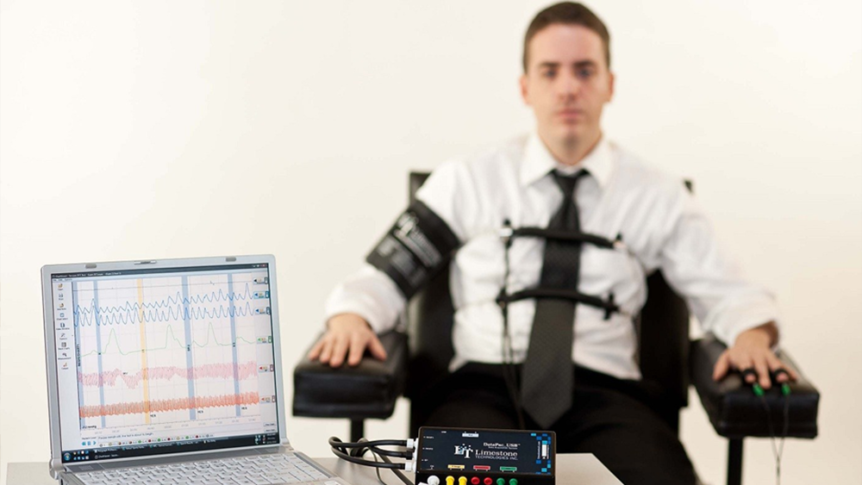The concept of a lie detector test, often shrouded in mystery and intrigue, piques the curiosity of many. Whether featured in crime dramas or discussed in legal debates, lie detector tests are highly interesting. But what does it measure? Let’s break down the mechanics of this fascinating tool and explore its applications in today’s world.
At its core, a lie detector test, more formally known as a polygraph test, is designed to observe physical changes in a person’s body that may indicate deception. It does this by measuring various physical functions during a controlled interview process.
Physiological Indicators:
The polygraph test is designed to measure several key vital signs, each offering clues about the subject’s state of mind and truthfulness:
Blood Pressure: Changes in blood pressure are often seen as indicators of stress or anxiety. Such physiological responses can arise when an individual feels the pressure of scrutiny or the need to deceive.
Heart Rate: Similarly to blood pressure, a fluctuating heart rate can signal stress. An increased heart rate, in particular, is commonly associated with lying as the body reacts to the psychological strain of fabricating or concealing the truth.
Respiration: The pattern and depth of breathing can also provide insights. Variations may indicate periods of stress or instances when the person is consciously trying to control their breath to mask anxiety and maintain composure.
Skin Conductivity: Known technically as galvanic skin response, this measures the skin’s electrical conductivity, which increases with moisture level. Since sweating is a natural stress response, higher skin conductivity can suggest a person is nervous or deceptive.
Each of these indicators is recorded during a polygraph test to assess whether a person’s physiological responses deviate from their normal baseline in a way that suggests they are not being truthful.
Question Technique:
The success of a lie detector test greatly depends on the examiner’s expertise and the nature of the questions posed. To effectively gauge truthfulness, examiners employ two primary types of questions during the test:
Relevant Questions: These are directly linked to the subject matter being investigated. They are designed to elicit responses that may indicate deception if the respondent is not truthful. The answers to these questions are critical as they are compared against the physiological responses measured during the test.
Control Questions: These are used to establish a baseline of the individual’s normal physiological responses when they are assumed to be telling the truth. Control questions are usually unrelated to the issue at hand but can provoke anxiety or stress, helping to define what a truthful physiological response looks like for that individual.
This systematic approach allows the examiner to compare responses to both types of questions, aiding in the interpretation of whether changes in physiological responses are likely due to deception or simply natural variations in the individual’s emotional state.
Interpretation of Results:
Interpreting the results of a polygraph requires expertise. The examiner looks for specific patterns that indicate physiological responses associated with lying. However, it’s crucial to note that a polygraph does not measure lies directly but rather the physiological changes that might accompany lying.
Applications and Reliability:
Polygraph tests are employed in various sectors, including criminal investigations, employment screenings, and security checks. The debate about their reliability continues, with arguments on both sides about their effectiveness and ethical implications.
Also Read: How Accurate Are Lie Detector Tests?
Conclusion
Understanding what a lie detector test measures allows individuals and professionals to appreciate its capabilities and limitations. While not infallible, it can help seek the truth when appropriately administered by trained professionals.
If you’re considering using a lie detector test or have any questions about how it might be applied to your specific situation, don’t hesitate to contact us. At Global Polygraph Solutions, we’re committed to providing precise and reliable polygraph testing services. Book a Lie Detector Test with us, or call us today to discuss how we can assist you in discovering the truth.
FAQ’s:
How accurate is a lie detector test?
The accuracy of a lie detector test can vary, with estimates usually between 70% and 90%, depending on the circumstances and the examiner’s skill.
Can you fool a polygraph test?
While there are anecdotal accounts of people fooling polygraph tests, it is generally difficult due to the range of physiological indicators measured.
Are there any legal restrictions on the use of lie detector tests?
Yes, the use of lie detector tests is regulated in many jurisdictions, and their admissibility in court varies by country and context.
What is the difference between a polygraph test and a lie detector test?
A polygraph test is the formal term for what is commonly referred to as a lie detector test. Both terms describe the same procedure.
How can I book a lie detector test?
To book a local lie detector test, you can search for certified polygraph examiners or lie detector test services in your area. Make sure to choose a service known for its accuracy and reliability.

